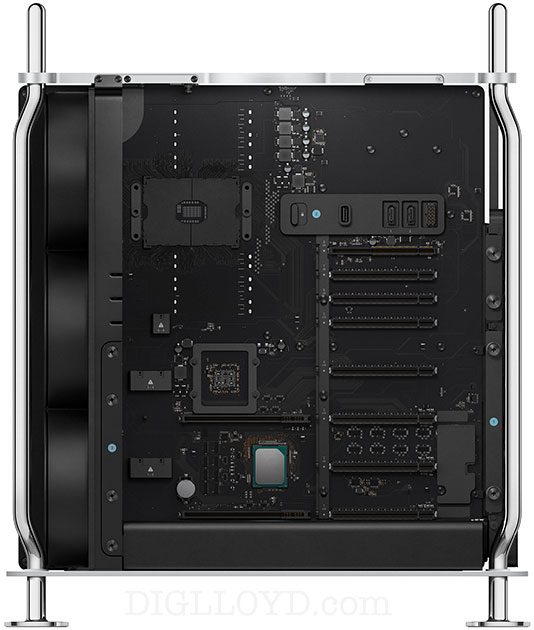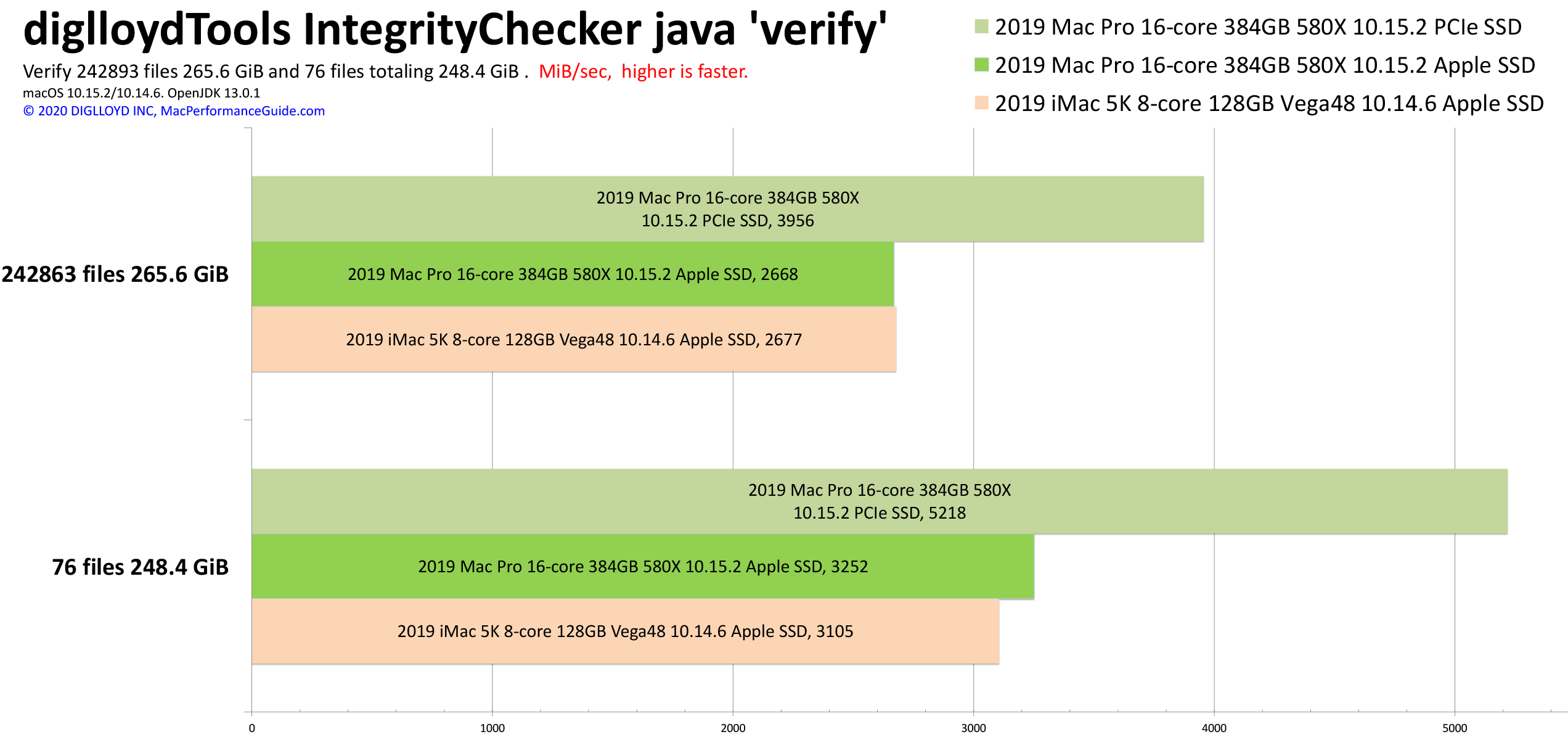
|

|

|

|

|

$220 SAVE $130 = 37.0% Western Digital 16.0TB Western Digital Ultrastar DC HC550 3.5-in… in Storage: Hard Drives
|

|

|

|

|
2019 Mac Pro: IntegrityChecker Verify
Related: 2019 iMac 5K, 2019 Mac Pro, 4K and 5K display, backup, computer display, CPU cores, data integrity, diglloydTools, iMac, iMac 5K, IntegrityChecker, Mac Pro, Macs, memory, Other World Computing, SSD
MPG tested the $9399 Apple 2019 Mac Pro with 384GB OWC memory vs the top-end $3849 2019 iMac 5K 3.6 GHz Intel Core i9 8-core / Vega 48 with 128GB OWC memory. The memory difference is not a factor in this test.
The support of OWC / MacSales.com and B&H Photo is essential for making these reviews possible.
Please order through our links via these companies and/or subscribe to diglloyd publications.
Mac wish list • Storage wish list • SSD wish list • Ports wish list
Not sure which Mac to get or how to configure it? Consult with MPG Lloyd.

Background
Cross-platform (any computer with Java) DiglloydTools IntegrityChecker runs SHA1 hashes on files to maintain data integrity checks. These days with so many Apple bugs, any professional should be using it to validate their data integrity, especially with macOS Finder silent data-loss risks and outright bugs when copying files.
The verify command of diglloydTools IntegrityChecker utilizes all CPU cores as efficiently as any application ever can, using sophisticated I/O algorithms to feed data to the CPU as fast as the OS can go. Performance will thus be gated by I/O speed unless all CPU cores are fed data fast enough to be fully utilized. Performance on an 8-core system can be up to 3 GB/sec if the I/O speed suffices.
Results: IntegrityChecker verify
I/O speed is the limiting factor, so that unless the 2019 Mac Pro uses a very fast PCIe SSD (as shown), it speed will be little better than the 2019 iMac 5K.
When the OWC Accelsior 4M2 PCIe SSD is used (capable of about 6.2 GiB/sec), the 2019 Mac Pro CPU cores ome into play. Otherwise, up to about 3 GB/sec, data does not read fast enough to keep IntegrityChecker threads busy for more than the iMac 5K can handle.
Note: throughput in MiB/sec; multiply by 1.0486 for MB/sec.

Seagate 22TB IronWolf Pro 7200 rpm SATA III 3.5" Internal NAS HDD (CMR)
SAVE $100

 diglloydTools™
diglloydTools™


